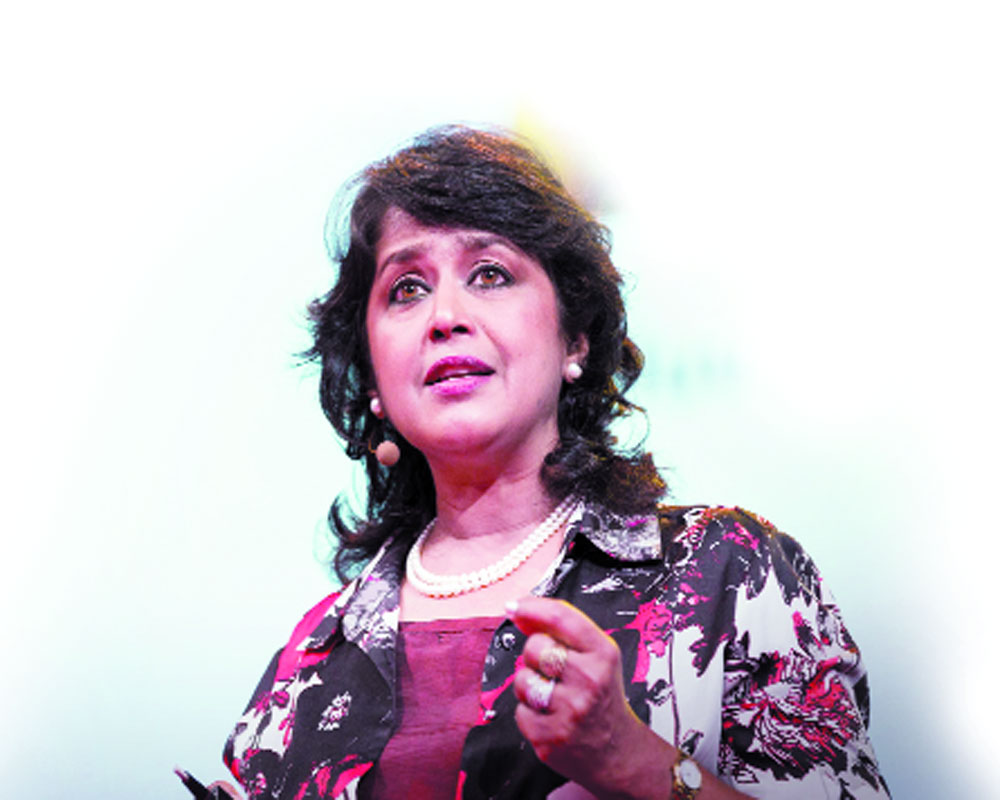UTTAR PRADESH / MAURITIUS :
Former President of Mauritius Ameenah Gurib-Fakim tells Asmita Sarkar that there are no two ways forward than making women and minorities part of the progress
She holds many mantles — politician, the first woman President of Mauritius and a biodiversity scientist. Not only that, she is also a proponent of cultural diversity and creating entrepreneurial opportunities for women in Africa. Social media- savvy and with a clear voice, she pushes for saving the planet and its biodiversity.
What is the way forward in Asia and Africa to empower women and other minority sections?
No team can win a football match by leaving 52 per cent of the team on the bench. Women, minorities must all come together with their talents and change their way of doing things. Our diversity is our strength. When it comes to minorities, I am reminded of the words of a great statesman Pierre Trudeau. He stated and I quote, “A just society will be one in which the rights of minorities will be safe from the whims of intolerant majorities”. Countries that have valued immigrants, like the United States, are a classic example. Most of the big brands in the US have emerged from the contribution of immigrants.
As a scientist and politician, how did you envision your expertise in changing the world around you?
Countries need to be technically-driven and this is where scientists have a key role to play in shaping the destiny of their respective countries provided the leadership takes heed. Again those countries that have recognised this technical vision have emerged strong.
Countries need strong institutions and strong leadership to emerge and science and technology are powerful tools. For the first time in 2015, even institutions like the United Nations (UN) have recognised this in the crafting of the UN Sustainable Development Goal’s.
Can you tell us about your link to India?
I am a fourth generation Indian from the diaspora. My forebears came from Ghazipur area in Uttar Pradesh. They left in 1862 to come to Mauritius to work the land and never returned.
Going forward, do you think that conversations around biodiversity have become confined to conservation alone?
May be the conversation has been skewed towards conservation but it is an equally laudable exercise, and one that we cannot shy away from.
What personal struggles did you face while growing up which you wish girls in your country don’t have to anymore?
When I was growing up, I had a set of challenges like girls were forever being denied education. That is no longer the case in my country although I am aware that this still happens in many other countries.
Girls in science were a rarity but is now becoming more common. So hopefully with more role models, it will ease the way for many more to join the efforts for encouraging girls and women in both leadership and power.
What is the way forward for Asia to transition from emerging economies to developed ones without damaging the environment?
Asia is fast emerging but the leadership will have to acknowledge that development must rhyme with sustainability. It is in their interest for their survival, for the prosperity of its people and long term future of their countries.
(The leader will be at the 10th edition of TEDxGateway on December 2 at the DOME @ NSCI Mumbai)
source: http://www.dailypioneer.com / The Pioneer / Home> Vivacity / by Asmita Sarkar / November 27th, 2018









